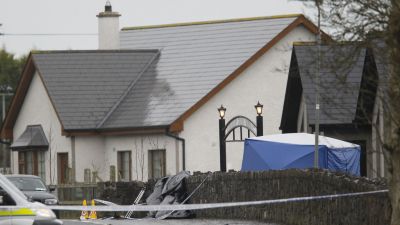The High Court has agreed to adjourn a hearing to wind up two Russian state-owned aircraft and shipping leasing firms worth over $4.5 billion (€4.11 billion) to the end of the month.
Four creditors of the firms have asked the High Court to appoint a liquidator to Irish registered GTLK Europe DAC, and the related entity GTLK Europe Capital DAC on the grounds the firms are insolvent and unable to pay their debts.
The four, whose petition is being supported by other creditors of the group, want Damien Murran and Julian Moroney of Teneo Restructuring Ireland appointed as joint liquidators to the companies which have been hard hit by international sanctions imposed on Russia following the invasion of Ukraine.
The companies are opposing the application, and claim that despite the sanctions, they are solvent.
If the application is successful and a liquidator appointed to the firms, it would be the largest winding up in the history of the Irish State.
Mr Justice Brian O'Moore had fixed the hearing of the petition to wind up the companies to next week, and the matter was expected to last for two days.
However, following a pre-trial application by Benedict O'Floinn SC for the companies on Thursday, the judge agreed to put the hearing back to the end of May.
Mr O'Floinn asked the court to consider adjourning the matter for another four weeks.
The court he said had put in place a timetable for the exchange of pleadings and the hearing of the petition.
Counsel said despite the obvious difficulties his side has done its best to comply with the timetable but said that given the complexities involved would not be able to furnish legal submissions in time for next week's planning hearing.
A period of four weeks would allow his side to furnish its legal submissions.
Kelley Smith SC, instructed by William Fry Solicitors for the creditors, had opposed the adjournment and argued the case should proceed as originally planned.
She said there appeared to be no dispute regarding the facts of the case between the parties, and her clients are concerned about the matter being prolonged any further than was necessary.
Mr Justice O'Moore said the court wanted to be fair to all sides and agreed to adjourn the matter to the end of the month and fixed the hearing for the 29 and 30th of May.
Given the urgency of the matter and the size and scale of the businesses sought to be liquidated, the judge said he was not prepared to put the matter back any further than the end of the month.
GTLK is Russia's largest leasing business in the transport sector, and leases ships and aircraft to customers all over the world.
It is ultimately owned by the Russian Federation's ministry of transport. Several directors of GTLK's ultimate parent are government ministers or deputy ministers in the Kremlin.
The four creditors that have petitioned the court for orders winding up the GTLK firms are Dublin registered Trinity investments DAC and an associated entity Allestor Europe Multi Asset Portfolio which is a sub fund of Allestor Capital ICAV.
The other two creditors seeking the winding up orders are Ben Oldman Special Situations Fund LP and Sona Credit Master Fund Limited which are both registered in the Caymen Islands.
The creditors claim that they are owed some $178 million by GTLK Europe.
They claim that the economic sanctions imposed on Russia following the invasion of Ukraine in February 2022 have had "a devastating effect" on the GTLK Europe Group.

GTLK's Europe Group's international leasing business is headquartered in Dublin, and the firms that are sought to be wound up are at the top of the group's structure.
The creditors claim they entered into a series of agreements to refinance the respondent company's debts, where they advanced significant funds to GTLK Europe Captial, of which GTLK was a co-guarantor.
After the sanctions were imposed the creditors claim there has been significant default by GTLK Europe Capital regarding it repayment obligations, specifically the requirement to repay interest due on the loans.
The creditors claim that the group has not satisfied their demands for repayment.







